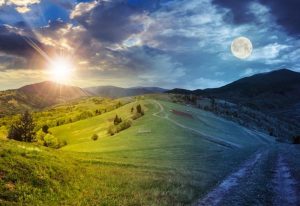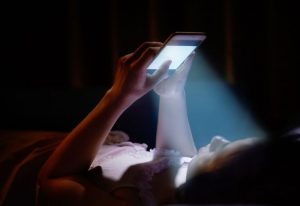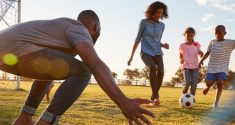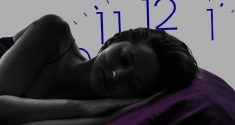Getting a good night’s sleep seems to be a challenge in our modern, industrialized world. Indeed, the world’s leading health organizations and numerous researchers have suggested that sleep problems have become a global epidemic. Studies point to the role that artificial lighting may play in the higher rate of sleep disorders and sleep deprivation experienced throughout the world. That is because of the link between sleep and wake times, the circadian rhythm and light, the most powerful environmental cue for the circadian rhythm. According to researchers, exposure to natural light and its cycles by spending time outdoors improves sleep and can even help to reset a disrupted circadian rhythm.
The Circadian Rhythm and Sleep/Wake Timing

Humans, along with all life on Earth, evolved to this roughly 24-hour cycle, giving rise to our own approximately 24-hour cycles; circadian rhythms. Our circadian rhythm helps to regulate countless processes and functions within our minds and bodies, even down to the timing of the activities of a single cell. Sleep and wake timing are among the activities that the circadian rhythm helps to regulate.
How Spending Time Outdoors Improves Sleep
Light is the most powerful and most important environmental cue for the circadian rhythm. In times past, before the advent of artificial lighting, when we were primarily an agrarian population, most people’s lives were in sync with the natural lighting they had at their disposal. People rose with the sun, worked in natural light and slept at night. That isn’t how we live today. Most people spend far more time inside with artificial lights. Sunlight typically provides 50,000 to 100,000 lux of light, compared to the 250 to 500 lux provided by the usual light bulb types.
In addition to getting far less natural light exposure than thousands of years of evolution has led our bodies to expect, we also extend the day well into the night via artificial lighting and electronic devices, such as mobile phones, tablets, computers and televisions. In other words, we get light exposure at the wrong time. That unnatural – in terms of how our bodies have evolved to function – light exposure pattern can delay the sleep-wake cycle and disrupt of overall circadian rhythm. However, this is how many of us live in today’s modern world, contributing to chronic sleep problems, chronic circadian rhythm disruption and a number of chronic diseases and health conditions.
Because it brings us closer to the earth’s natural cycles of day and night, multiple studies confirm that spending time outdoors can yield better sleep. In addition, spending significant time outside and away from artificial light, allowing activities to be guided more by the natural cycle of light as it moves through day and night, can help reset your circadian rhythm and improve overall sleep quality.
Researchers have found that camping can quickly get your circadian rhythm back on track, typically within a week and often within just a few days. This connection between time outside and better sleep has been found to be true over all age groups, including those 65 years of age and older. The reason spending time outside is effective is because of the light exposure; both the lux level and the timing of that light exposure.
Make Time for the Great Outdoors
Not everybody can take a week off and go camping to reset their circadian rhythm and majorly improve their sleep quality. However, there are still plenty of ways to apply what researchers have learned about the links between light, sleep quality and the circadian rhythm to your everyday life so you can enjoy better sleep, keep your circadian rhythm running smoothly and improve your overall health and well-being.

Because light exposure can delay melatonin production and sleep timing, reduce your exposure to bright lights in the evening. Blue light exposure can be particularly problematic when it comes to melatonin suppression. Blue light is the light emitted by LED lighting and electronic screens, including computer, tablet, television and mobile phone screens. Limit the use of these devices in the evening and try to not use them at all in the two hours before bedtime.
Find time each day beyond the usual on your way to work or running errands time to be outside. Smell the flowers, hear the birds, admire the broad expanse of the sky. You’ll sleep better and feel better.







